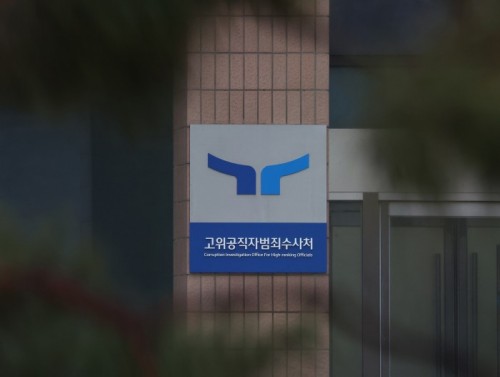 |
| The Corruption Investigation Office for High-ranking Officials (CIO) sent an official letter to the National Office of Investigation, an affiliate of the National Police Agency, delegating the execution of the arrest warrant for President Yoon Suk-yeol. The photo shows the CIO signboard at the government office building on Jan. 6, 2025./ Source: Yonhap |
AsiaToday reporters Kim Im-soo, Park Se-young, and Kim Hyung-joon
The Corruption Investigation Office for High-ranking Officials (CIO) now stands at a crossroads. Not only did it leave a stain on constitutional history by issuing and attempting to execute an illegal arrest warrant for a sitting president, but it also tried to hand over the arrest to the police just one day before the warrant’s expiration, only to be effectively rejected. The CIO, which lacks jurisdiction over insurrection charges, has been criticized for overstepping its bounds in investigating the president, becoming a subject of ridicule in the opposition’s political games.
The ruling party has raised questions about the necessity of the anti-corruption body, and even the main opposition Democratic Party (DP) has called for accountability for the failed arrest attempt.
According to the CIO, the police, and political circles on Monday, the CIO, which is investigating President Yoon Suk-yeol on charges of insurrection, initially decided to delegate the enforcement of a detention warrant for the president to the police, but the request was rejected. The two sides, under the Joint Investigation Unit, discussed the execution of the arrest warrant and refiled the detention warrant at the Seoul Western District Court to extend the deadline, which was set to expire at midnight on Monday.
Despite lacking jurisdiction over insurrection charges, the CIO emerged as the primary investigative body after receiving the case from the prosecution and police. However, the results have been dismal from the start. The CIO has been criticized for “judge shopping” and “illegal warrant execution,” leading to accusations of disrupting the legal order and exacerbating social confusion. Both ruling and opposition parties are now questioning the necessity of the CIO, with some even calling for its abolition. Even the DP, which has established the CIO, is more outraged than the ruling party over the investigative body’s missteps in the attempt to arrest President Yoon.
“Even if we mobilize all our prosecutors and investigators, we only have 50 personnel, and only 30 of them can be deployed to the scene for the section of the arrest warrant,” said CIO Deputy Chief Lee Jae-seung, acknowledging the limitations of their investigative capacity. “We judged that it would be better for the police to handle and proceed with the situation.”
Legal experts have criticized the CIO’s interpretation of Article 81 of the Criminal Procedure Act, which states that detention warrants are executed by judicial police officers under the direction of a prosecutor, as arbitrary. A lawyer who previously served as a deputy chief prosecutor said, “Following the adjustment of investigative powers between the prosecution and the police, the prosecution can no longer direct judicial police in the execution of warrants. This interpretation is not practically applicable. The current Article 81 of the Criminal Procedure Act is limited to judicial direction and does not apply to CIO prosecutors.”
#CIO #Yoon Suk-yeol #police #arrest warrant
Copyright by Asiatoday
Most Read
-
1
-
2
-
3
-
4
-
5
-
6
-
7





















